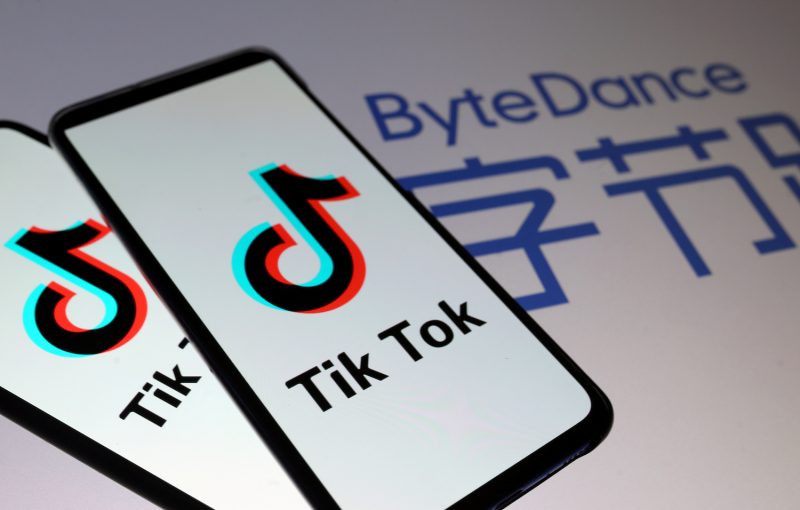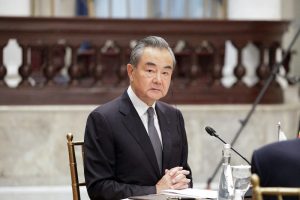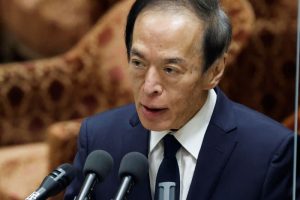(ATF) There have been reports of two bids for TikTok and a ‘wild card’ – two alleged offers from major US conglomerates – and speculation that Beijing wants a say in what happens to the popular short-video app.
Microsoft and Oracle are among bidders for TikTok’s operations in the US as well as Canada, Australia and New Zealand.
But the surprise news on Sunday was that China’s new rules around tech exports mean ByteDance’s sale of TikTok’s US operations could require approval from Beijing, according to a Reuters report, which quoted a Chinese trade expert who told state media, that such a “requirement” that would complicate the forced and politically charged divestment.
READ MORE: TikTok owner says will abide by new Chinese export rules
ByteDance has been ordered by President Donald Trump to divest TikTok, which has challenged his Executive Orders in court – in the United States by September 20, amid security concerns over the personal data it handles.
Microsoft and Oracle have reportedly made bids, according to Chinese and foreign news reports.
Chongqing Morning news quoted reports from the (UK) Daily Mail and The Wrap, a US news website, quoting sources close to the negotiations said that Oracle, which had previously shown an intention to acquire TikTok, has given a clear offer.
And on Thursday, Microsoft and Wal-Mart also launched a joint bid, the Chinese outlet said in a report titled ‘Who will TikTok choose?’
Preferred bidder
According to these sources, Oracle is the preferred buyers among several bidders, and it allegedly has the support of American investors, the White House and TikTok parent company Bytedance.
Oracle’s bid is $10 billion in cash and $10 billion in Oracle stock. In addition, Oracle had agreed that half of TikTok’s profits would be returned to Bytedance within two years, the source was quoted as saying.
Last week, The Wall Street Journal reported that Bytedance’s two major US investors, General Atlantic and Sequoia Capital, were pushing Oracle’s bid to exceed Microsoft’s offer. Microsoft is also very compromised by China, after decades of working in the PRC. It even has a censored version in Chinese of its Bing search engine.
The details of Microsoft’s offer are still unclear. However, on the evening of August 27, Microsoft’s stock price soared nearly 4%, and its market value exceeded $1.7 trillion in one fell swoop (which is equivalent to more than 11 trillion yuan). Wal-Mart’s stock price also jumped by more than 4%.
Industry insiders speculated in the Chinese report that this may be related to a joint acquisition of TikTok by Microsoft and Wal-Mart. Indeed, some people suggested that TikTok was likely to reach a sale with Microsoft Wal-Mart within 48 hours.
But TikTok has not yet commented on this, possibly because Beijing now allegedly wants to scrutinise the deal.
US President Trump announced a new ban on the TikTok app at the beginning of August, when he said his administration would also restrict US companies from conducting any transactions with WeChat software from September 20.
The reason for the WeChat ban is also given as national security risks to the US.
Calls for ban on Apple products
After the news came out, the Chinese Communist Party’s media “attack” outlet, the Global Times noted that Apple’s company’s stock price had fallen repeatedly.
Some Chinese media and officials are calling for a ban on the sale of Apple products in China if the WeChat ban goes ahead.
Though the WeChat ban seems unclear – if it is just on financial transactions it will cause inconvenience to very few people in the US.
But in China some media have implied that the ban on WeChat would mean Chinese users could not use WeChat on Apple’s mobile phones in China. That may have an impact on Apple’s launch of the iPhone 12 in October.
China revises restricted technologies list
However, late on Friday, China revised a list of technologies that are banned or restricted for export for the first time in 12 years.
And Cui Fan, a professor of international trade at the University of International Business and Economics in Beijing, said the changes would apply to TikTok.
“If ByteDance plans to export related technologies, it should go through the licensing procedures,” Cui said in an interview with Xinhua published on Saturday.
China’s Ministry of Commerce added 23 items – including technologies such as personal information push services based on data analysis and artificial intelligence interactive interface technology – to the restricted list.
It could take up to 30 days to obtain preliminary approval to export the technology.
TikTok’s secret weapon is believed to be its recommendation engine that keeps users glued to their screens. This engine, or algorithm, powers TikTok’s “For You” page, which recommends the next video to watch based on an analysis of a viewer’s behaviour.
Cui noted that ByteDance’s development overseas had relied on its domestic technology that provided the core algorithm and said the company may need to transfer software codes or usage rights to the new owner of TikTok from China to overseas.
“Therefore, it is recommended that ByteDance seriously studies the adjusted catalogue and carefully considers whether it is necessary to suspend” negotiations on a sale, he added.
ByteDance did not immediately respond to a request for comment on Sunday.
China’s foreign ministry has said that it opposes the executive orders Trump has placed on TikTok and that Beijing will defend the legitimate rights and interests of Chinese businesses.
With reporting by Tom Daly, Zoey Zhang and Yingzhi Yang of Reuters
























